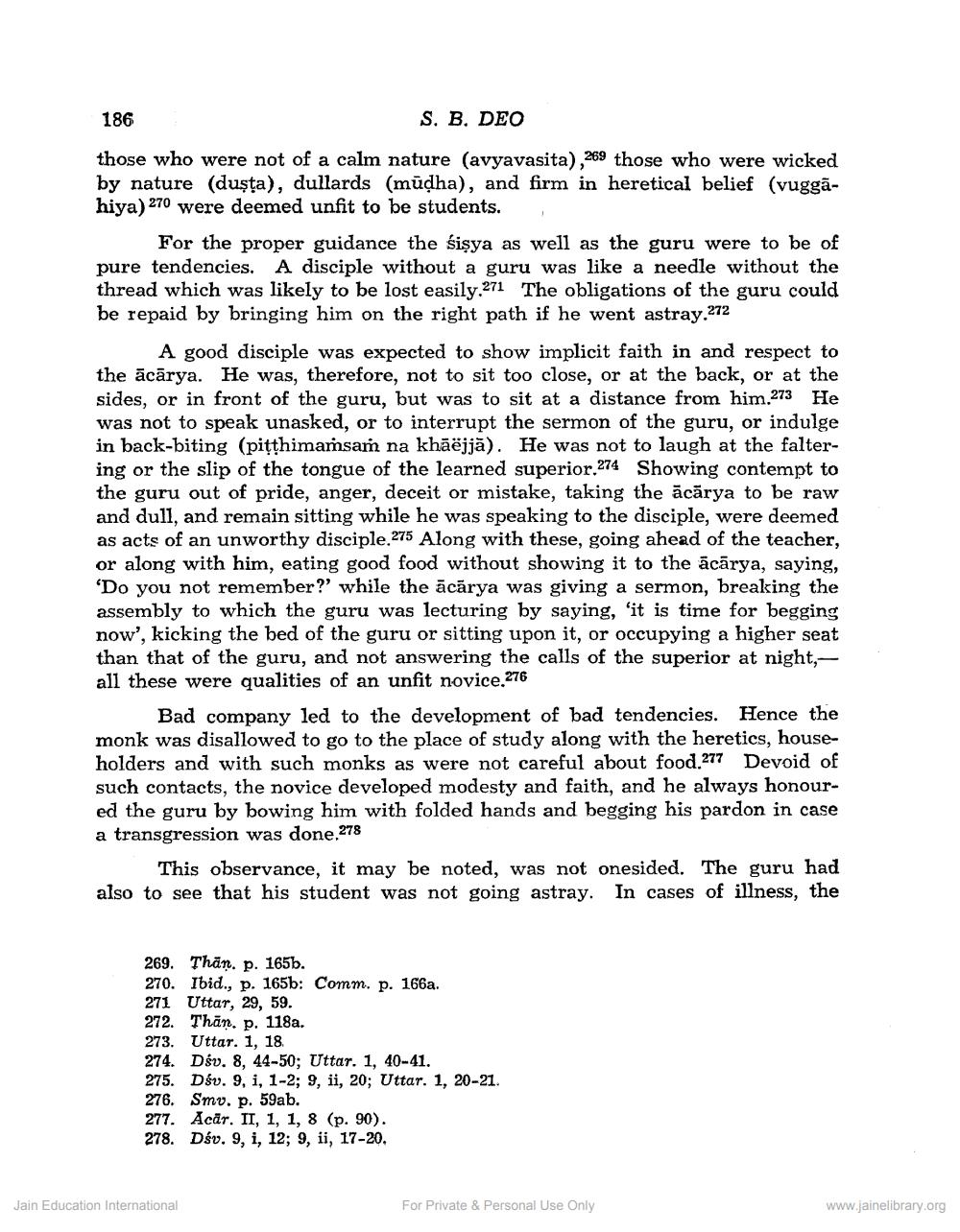________________
186
S. B. DEO
those who were not of a calm nature (avyavasita),269 those who were wicked by nature (duşta), dullards (mūdha), and firm in heretical belief (vuggãhiya) 270 were deemed unfit to be students.
For the proper guidance the sişya as well as the guru were to be of pure tendencies. A disciple without a guru was like a needle without the thread which was likely to be lost easily.271 The obligations of the guru could be repaid by bringing him on the right path if he went astray.272
A good disciple was expected to show implicit faith in and respect to the ācārya. He was, therefore, not to sit too close, or at the back, or at the sides, or in front of the guru, but was to sit at a distance from him.273 He was not to speak unasked, or to interrupt the sermon of the guru, or indulge in back-biting (piţthimamsam na khāejjā). He was not to laugh at the faltering or the slip of the tongue of the learned superior.274 Showing contempt to the guru out of pride, anger, deceit or mistake, taking the ācārya to be raw and dull, and remain sitting while he was speaking to the disciple, were deemed as acts of an unworthy disciple 275 Along with these, going ahead of the teacher, or along with him, eating good food without showing it to the ācārya, saying, 'Do you not remember?' while the ācārya was giving a sermon, breaking the assembly to which the guru was lecturing by saying, “it is time for begging now, kicking the bed of the guru or sitting upon it, or occupying a higher seat than that of the guru, and not answering the calls of the superior at night, all these were qualities of an unfit novice 276
Bad company led to the development of bad tendencies. Hence the monk was disallowed to go to the place of study along with the heretics, householders and with such monks as were not careful about food.277 Devoid of such contacts, the novice developed modesty and faith, and he always honoured the guru by bowing him with folded hands and begging his pardon in case a transgression was done.278
This observance, it may be noted, was not onesided. The guru had also to see that his student was not going astray. In cases of illness, the
yed to go to the placre not careful about he always hon
269. Thăn. p. 165b. 270. Ibid., p. 165b: Comm. p. 166a. 271 Uttar, 29, 59. 272. Thăm. p. 118a. 273. Uttar. 1, 18 274. Dśv. 8, 44-50; Uttar. 1, 40-41. 275. Dfv. 9, i, 1-2; 9, ii, 20; Uttar. 1, 20-21. 276. Smu. p. 59ab. 277. Acar. II, 1, 1, 8 (p. 90). 278. Dáv. 9, i, 12; 9, ii, 17-20.
Jain Education International
For Private & Personal Use Only
www.jainelibrary.org




